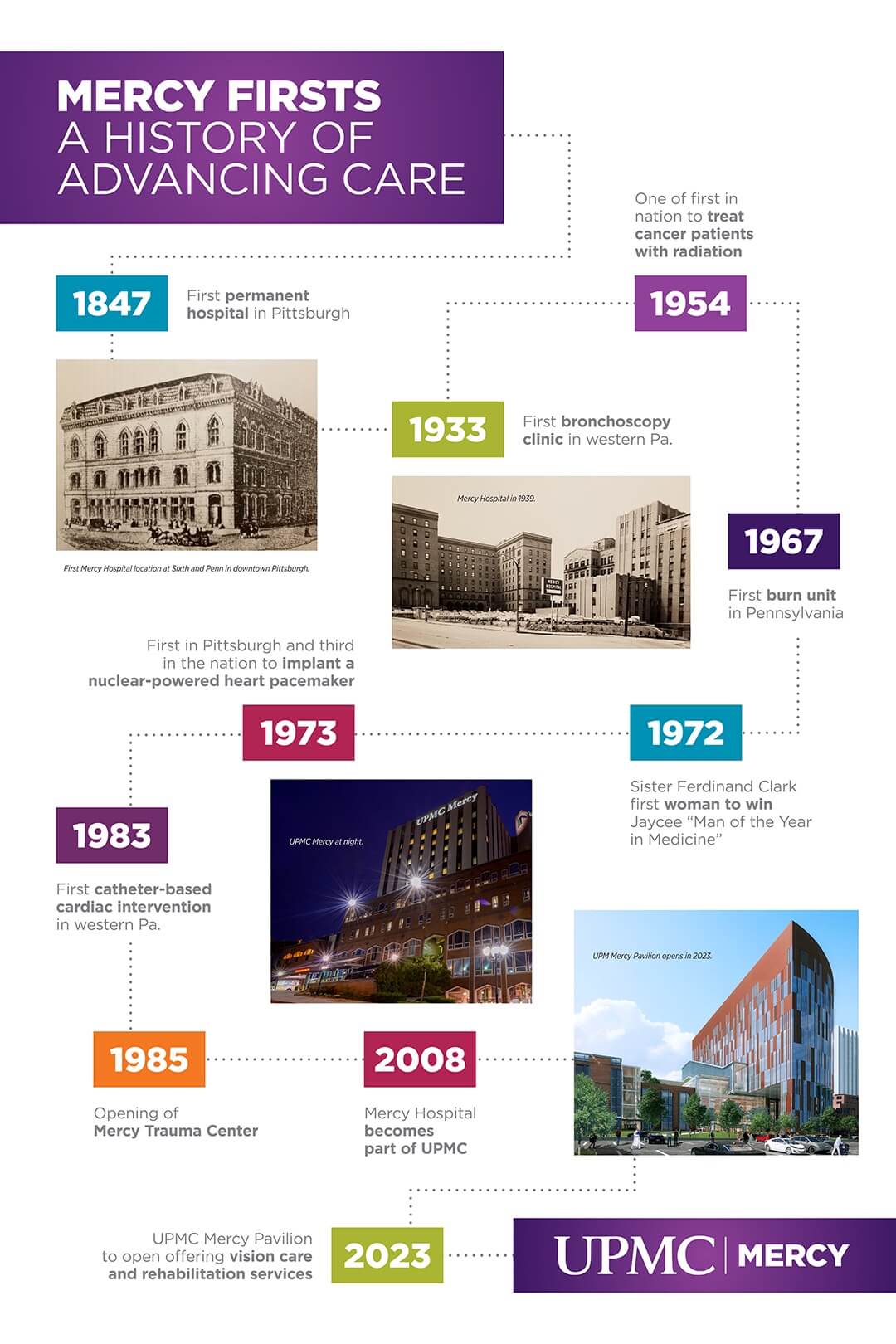The Sisters of Mercy, a religious congregation founded in Ireland in 1831 by Catherine McAuley, brought its caring and compassionate labors to burgeoning, industrial Pittsburgh in 1843. Mother Frances Warde led six other sisters to the United States, where they founded the first congregation of the Sisters of Mercy in Pittsburgh. The pioneering “Seven Sisters” of Mercy opened the first hospital in Pittsburgh and the world’s first Mercy Hospital on Jan. 1, 1847. Everyone was welcomed regardless of race, nationality, age, gender, or religion. Mercy established the region’s first teaching hospital with resident physicians in training in 1848.
Mercy Hospital grew rapidly with Pittsburgh in the second half of the nineteenth century. To qualify for new funding sources, the hospital was incorporated, a board was established, and Thomas M. Carnegie was elected board president.
The Sisters of Mercy and the dedicated physicians and nurses of Mercy Hospital continued to serve the Pittsburgh region through World War I, the worldwide epidemic of Spanish influenza, the Great Depression, and World War II. In 1931, Mercy Hospital donated more than $600,000 worth of health care services when one day in the hospital cost under $4. That commitment to the community was demonstrated again when, in the 1960s, Mercy decided to rebuild and remain in uptown Pittsburgh.
Over the next four decades, the hospital expanded, replaced facilities, and developed specialized programs and advanced technology.
In 2006, Mercy Hospital decided to seek a strategic partner to strengthen and preserve its faith-based care. Mercy Hospital of Pittsburgh merged with UPMC to become UPMC Mercy on Jan. 1, 2008.
The hospital remains Pittsburgh’s only Catholic hospital with specialized services, including the neurosciences, Level I trauma and burn services, orthopaedics, and physical medicine and rehabilitation.


















